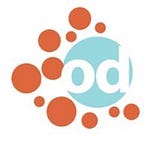Impact Series: Using Open Data for Economic Impact in Nigeria
The Edo AgriHub team engaged local communities in the data collection process.
By: Gillian Whitworth, Open Data Institute (ODI)
The context
Farming provides a significant source of revenue for the population of Edo State in Nigeria, and the state government prioritises the growth and sustainability to this sector. However, government policy-makers require accurate information to make informed policies that create a thriving business environment. Similarly, investors need the right data to facilitate their investment in farmers and agricultural companies. Consequently, the lack of verifiable and granular data to bridge this information gap limits the activities of key stakeholders and reduces the growth opportunities in the sector. To overcome this challenge, a governmental cross-departmental team developed the Edo AgriHub (EDAH) platform to provide a central repository containing data about farms across the state, providing an information source for farmers, agribusiness, investors and the government. The site team also plan to showcase the success stories of farmers who employ innovative technologies to become more efficient in their work.
Our solution
The EDAH team applied for the Open Data Institute mini-grant programme, which is supported by Open Data for Development (OD4D). The programme provided seed funding for the establishment of the EDAH platform, including initial data collection from farms across the state. As a grant recipient, the project received £6,500 over a 12-week period to collect the data and establish the first version of the platform online.
In order to build the platform, the government established a standing committee which included representatives from the Ministry of Agriculture, the Information Communication Technology Agency, and the State Bureau of Statistics. This team sat weekly to deliberate and agree upon the process for the platform’s creation, including the design of data collection across 3,700 wards in the Orhionmwon area. The government also engaged the expertise of external stakeholders, including software company SabiHub, the Edo State Farmers Cooperative Agency, and members of local governments. These partnerships were critical to collecting a wide range of data on the location, type of produce, size and markets of the relevant farms.
Importantly, the project also engaged local communities in the data collection process. Data collectors held workshops with local communities, sharing the importance of open data and the potential economic benefits for farmers for capturing information about their farms. These workshops enabled collectors to overcome misconceptions about the data being collected and its intended use.
During the project, the team received additional support from the ODI through regular mentoring meetings. These meetings provided an opportunity for the project leads to explain issues and receive expert advice, particularly around funding and communications.
Emerging Outcomes
The EDAH platform was shared in late December 2016, and provided the first central repository for farming data in Edo State. The conclusion of this first phase of the project has demonstrated the impact of effective partnerships, both across and outside government, in prioritising high demand data for publication. By bringing together expertise from different ministries, companies and community organisations, the team successfully delivered a platform that will address the information gap between farms, investors and the government in Edo State.
The government is currently utilising the data on the portal for planning around agricultural policy, and the project has been included in the government’s budget for this year. This will ensure that the project is likely to be sustainable into the future.
In future, the team plans to repeat the data collection and community workshop process in the remaining 17 local government areas in Edo, so that the portal will provide a comprehensive overview of farming in the state.
For further information, see pictures of their data collection and videos on their findings.
Originally published at od4d.com on June 7, 2017.
